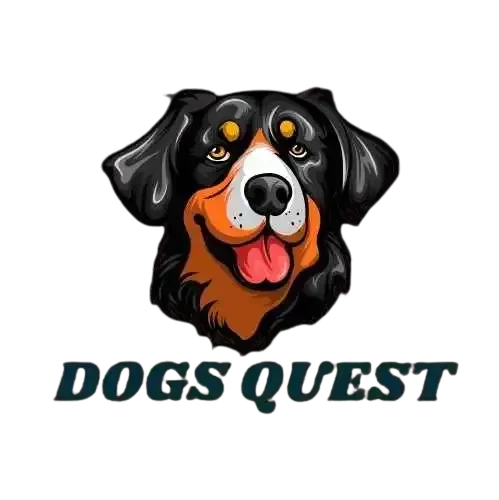Can dogs eat cheese safely? Discover 10 shocking facts about feeding cheese to dogs, its benefits, risks, types of cheese to avoid, and expert vet tips for a healthier pup.
Introduction
If you’re a dog parent, you’ve probably wondered: can dogs eat cheese? Whether it’s a slice of cheddar, a sprinkle of parmesan, or a piece of mozzarella, dogs often beg for a taste. Cheese smells delicious, it’s soft, creamy, and often irresistible to pets. But is it safe to share this human snack with your furry friend?
In this guide, we’ll explore everything you need to know about can dogs eat cheese. We’ll look at the benefits, the risks, the safest cheese types, and how much cheese is actually okay. We’ll also cover lactose intolerance, obesity concerns, and vet-approved feeding tips. By the end, you’ll have a clear, evidence-based answer to whether dogs and cheese are a safe combination.
Can Dogs Eat Cheese? The Quick Answer

Yes, dogs can eat cheese in moderation, but not all types are safe. Some cheeses are high in fat, salt, or additives that could upset your dog’s stomach. The key is portion control, choosing the right types of cheese, and understanding your dog’s tolerance level.
Why Do Dogs Love Cheese?
Dogs are naturally attracted to cheese because:
- High in fat and protein – makes it tasty and satisfying.
- Strong smell – stimulates their powerful sense of smell.
- Soft texture – easy to chew and swallow.
It’s no surprise that trainers often use cheese as a high-value treat during obedience training.
10 Shocking Facts About Can Dogs Eat Cheese

Let’s break down the truth behind this popular question with shocking but helpful facts every dog owner must know.
Not All Dogs Can Digest Cheese
Many dogs are lactose intolerant, meaning they lack the enzyme lactase to digest lactose in dairy. If your dog is lactose intolerant, cheese may cause:
- Diarrhea
- Gas
- Bloating
- Vomiting
Tip:
Start with a tiny piece of cheese and monitor your dog’s reaction.
Cheese Can Be a Great Training Tool
When asking, can dogs eat cheese, one positive fact is its usefulness in training. Trainers often use small cheese cubes as rewards because dogs find them irresistible. However, keep the portions tiny to avoid digestive upset.
Some Cheeses Are Dangerous for Dogs
Not all cheese is safe. Cheeses with added ingredients like garlic, onion, or herbs can be toxic.
Avoid these cheeses:
- Blue cheese (contains roquefortine C, toxic to dogs)
- Garlic or onion-flavored cheese
- Moldy cheeses
- Spicy cheeses
Cheese Is High in Fat
While dogs can eat cheese, it’s calorie-dense. Overfeeding may lead to:
- Obesity
- Pancreatitis
- Heart issues
For small dogs, even a little too much cheese can cause weight problems.
Low-Fat Cheese Is Safer
If you want to give your dog cheese, low-fat options are better.
Best choices:
- Mozzarella (low-salt version)
- Cottage cheese (low-fat, plain)
- Soft goat cheese
These are gentler on your dog’s stomach and lower in fat.
Cheese Can Hide Medicine
One of the best hacks for dog owners is using cheese to give pills. Slip the medicine inside a small piece of cheese, and most dogs will swallow it happily.
This is one of the reasons vets often say dogs can eat cheese—it’s practical.
Too Much Salt Is Dangerous
High-salt cheeses (like feta or parmesan) can harm dogs. Excess sodium may lead to dehydration or sodium poisoning. Symptoms include:
- Tremors
- Seizures
- Vomiting
Stick to low-salt varieties when possible.
Puppies and Cheese: Handle with Care
Puppies have sensitive stomachs. While they can eat cheese, moderation is even more critical. A tiny piece of cottage cheese is safe, but avoid hard, salty cheeses.
Cheese Isn’t a Balanced Diet
Cheese should never replace dog food. While dogs can eat cheese, it should only be an occasional treat. Dog kibble or balanced raw diets provide essential nutrients that cheese alone cannot.
Some Dogs Should Avoid Cheese Entirely
Dogs with the following conditions should avoid cheese:
- Obesity
- Pancreatitis history
- Severe lactose intolerance
- Chronic kidney issues (due to high salt content)
For these dogs, even small amounts could worsen health conditions.
Health Benefits of Cheese for Dogs

Surprisingly, cheese does offer some benefits:
- Protein – builds muscles
- Calcium – strengthens bones and teeth
- Vitamin A – supports eye health
- B vitamins – aid energy metabolism
As long as your dog isn’t sensitive, these nutrients can be helpful.
How Much Cheese Can Dogs Eat?
Moderation is the golden rule.
- Small dogs: 1–2 small cubes, once in a while
- Medium dogs: 2–3 cubes
- Large dogs: 3–4 cubes
Always follow the 10% rule: treats (including cheese) should never exceed 10% of your dog’s daily calorie intake.
Best Types of Cheese for Dogs
If you’re still asking, can dogs eat cheese safely, here’s the best list:
- Cottage cheese – easy to digest, low-fat
- Mozzarella – mild, lower sodium
- Cheddar (small portions) – okay if plain
- Soft goat cheese – easier to digest
Worst Types of Cheese for Dogs

Avoid these entirely:
- Blue cheese
- Roquefort
- Stilton
- Feta (too salty)
- Garlic/herb-infused cheese
Signs Your Dog Can’t Tolerate Cheese
Watch for these warning signs after feeding cheese:
- Loose stool or diarrhea
- Gas and bloating
- Excessive itching (possible dairy allergy)
- Lethargy
If you see these symptoms, avoid cheese and consult your vet.
Can Dogs Eat Cheese Everyday?
No, cheese should not be a daily snack. While dogs can eat cheese, everyday feeding increases risks of obesity, digestive issues, and long-term health problems. Save cheese for special rewards or when giving medicine.
Vet Tips on Feeding Cheese
Veterinarians suggest:
- Always test tolerance with a small portion
- Stick to plain, low-fat cheese
- Use it occasionally, not as a staple food
- Monitor your dog’s weight and digestion
Final Verdict: Can Dogs Eat Cheese?
So, can dogs eat cheese? The answer is yes, but with strict moderation. Cheese can be a fun training treat, a handy way to hide medicine, and even a source of protein and calcium. But too much cheese, or the wrong kind, can lead to digestive issues, obesity, or even poisoning.
The safest approach is to treat cheese like a special snack, not an everyday food. By choosing low-fat, low-salt options and keeping portions small, you can safely share cheese with your furry best friend.
FAQs About Can Dogs Eat Cheese
Q1: Can dogs eat cheddar cheese?
Yes, in moderation, but choose mild and plain cheddar only.
Q2: Can dogs eat cottage cheese?
Yes, it’s one of the best options since it’s low-fat and easier to digest.
Q3: Can dogs eat cream cheese?
Plain cream cheese in tiny amounts is safe, but avoid flavored varieties with garlic or onion.
Q4: Can dogs eat mozzarella sticks?
Avoid fried mozzarella sticks—too greasy. Plain mozzarella in small portions is fine.
Q5: Can lactose-intolerant dogs eat cheese?
Most cannot, but some tolerate small amounts of low-lactose cheeses like cottage cheese.

